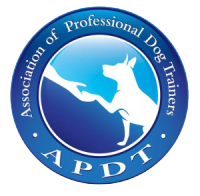Having allergies means that your immune system overreacts to harmless substances in the environment. People can be allergic to a range of things, but some of the most common allergens come from dogs, including their saliva. If you are thinking of getting a dog, or want to work with dogs, it’s important to check that you are not allergic to them. If you already have a dog or are in close contact with them regularly, we have some preventative measures you can take.
Why Are People Allergic to Dog Saliva?
Many people believe that if they have allergies to pets, it’s the fur that’s the problem, however, the body’s allergic responses are directed toward proteins found in a dog’s skin fakes, urine, blood, and saliva.
Dog saliva has even more protein profiles than a dog’s skin, so it will trigger the immune system and cause more allergies. Therefore, if you are allergic to the proteins in a dog’s saliva and a dog licks you, your immune system will activate and attack the proteins in the saliva, just as it would if it were a virus or bacteria. This will result in an allergic reaction which could include an outbreak of hives or a rash.
As well as licking you, if your pet licks their fur, or the furniture or carpet, it will leave salivary proteins that can dry and be dispersed through the air. Therefore, if you are allergic to dog saliva and inhale airborne proteins, you may experience watery eyes, sneezing, and/or coughing. This means you don’t have to be directly exposed to dog saliva to have an allergic reaction.
Can You Be Allergic to Certain Dogs’ Saliva?
It is possible to be allergic to certain dog’s saliva because dogs can have different protein profiles. This means you can be allergic to saliva from other people’s dogs even if you aren’t allergic to your own. The breed, size, age, or gender doesn’t play a role in determining whether someone will be allergic to the salvia. This is because even two dogs of the same breed or size can have different protein profiles, so someone could be allergic to one but not the other.
How To Tell You’re Allergic to Dog Saliva
The best way to tell if you’re allergic to dog saliva is to ask your doctor. They may be able to conduct a skin test where they will put an extract of dog saliva under the surface of your skin which is then monitored over time for signs of redness, inflammation, or swelling.
Symptoms of Dog Allergies
Symptoms of dog allergies can include watery, swollen eyes, a runny nose, itchy or irritated skin, or puffiness around the face. Allergic reactions can range from mild symptoms to much more severe depending on the person.
How to Deal With Dog Allergies
If you know you are allergic to dogs, we would highly recommend not buying or adopting a dog as it wouldn’t be fair to either of you. However, if already have a dog, and have only just developed allergies, you can avoid the drastic option of giving up your beloved pooch by taking certain measures around the home.
Minimise Contact
Take steps to minimise exposure such as cordoning off your bedroom, bed, and other personal areas to make sure your dog isn’t allowed in these spaces. Though allergens will still spread into these areas through the air and clothing, if your dog isn’t allowed to spend time there it will minimise the amount of proteins spreading and reduce symptoms.
Keep Your Dog Off The Furniture
Training your dog to not jump off the sofa, beds, or other furniture and keeping their bedding in a dedicated zone or room in the house, well away from family spaces will minimise symptoms. We recommend washing your dog’s items and toys regularly to avoid build-up.
Change Clothes After Contact
After petting or hugging your furry friend, wash your hands thoroughly, change your clothes, and take a shower to remove all allergens and reduce the risk of having an allergic reaction.
Wash and Brush Your Dog Regularly
Have a non-allergic family member brush them thoroughly at least once a week to reduce deposits of skin flakes. It’s important to know that if washed too frequently, your dog’s skin and coat could dry out, therefore only wash them when it’s necessary.
Dust and Clean
To keep skin flakes around the house to a minimum, make sure you regularly dust and clean your home, including your dog’s designated space as well as your own.
Research Before Buying a Dog
If you have not bought or adopted a dog just yet, and you know you have a dog allergy, we recommend conducting plenty of research before making the decision. Even if you are unsure if you have a dog allergy, it could be worthwhile to house-sit a breed that you are thinking of getting before actually bringing a new home. This way, you can be certain you can live comfortably together.
Contact A&T Trained Dogs
At A&T Trained Dogs, our team are highly knowledgeable and can help advise you on if you have allergies and the best course of action. Get in touch with us today.



